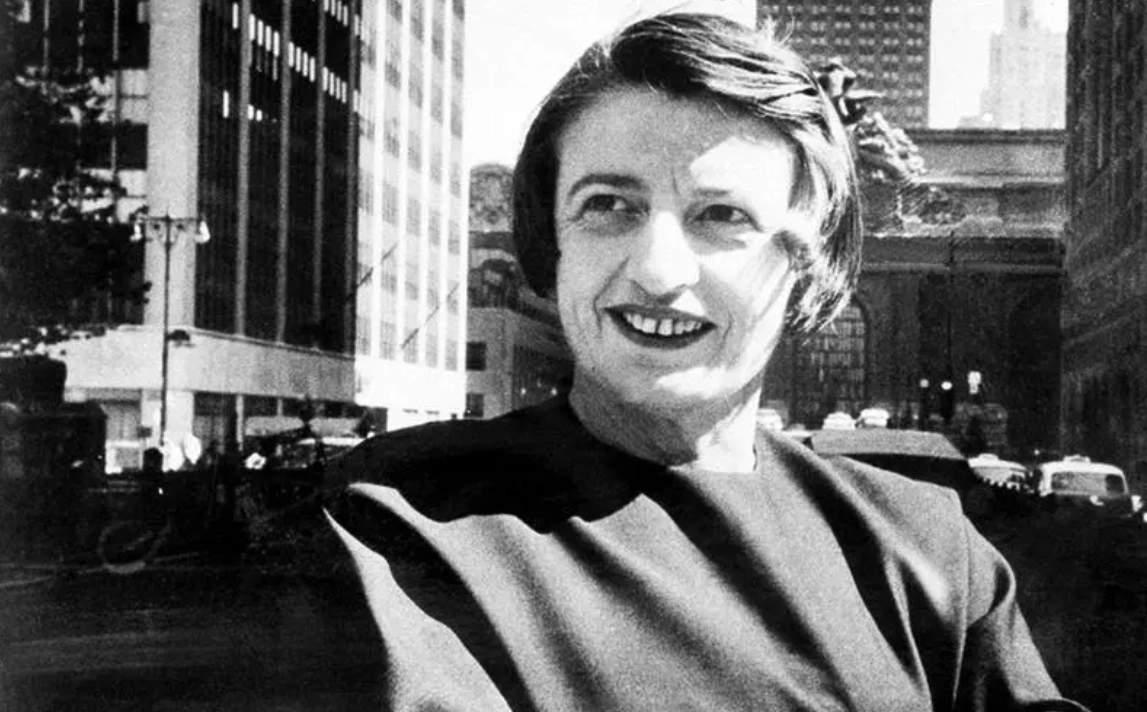It is a mystery the way in which political ideas travel through space and time, acquiring inconceivable and unexpected forms. The way in which they find fertile ground in different countries to take hold as disruptive narratives or alternative cosmovisions that propose radical changes. Some of this is happening now with libertarian ideas and narratives in Argentina, eighty years after their diffusion in the U.S.
One of its references is Ayn Rand, an American philosopher and writer of Russian origin, and author of voluminous works written in the 1940s and 1950s. “The Fountainhead”, a novel published in 1943, was one of her greatest literary successes, which together with “Atlas Shrugged” (1957), both translated into Spanish, brought her fame and influenced those who founded the Libertarian Party, years later.
The Fountainhead tells the story of Howard Roark, a young architect who decides to fight against social conventions, preconceived ideas, prejudices, and “fainthearted minds”.
The book tells the story of the main character’s battle against an establishment focused on the worship of tradition and lack of originality. The other characters in this novel embody various archetypes of human character, all of which are variations between Roark, the ideal man, single-minded, independent, and upright, and what the author describes as “second-handers”; mediocre people whose goal is to achieve success at all costs.
The complex relationships between Roark and the various people who help or hinder his personal progress make this novel something of a sprawling fable, both a romantic drama and a philosophical work, about the human spirit and an exaltation of selfish individualism. The title is a reference to a quote by the author: “Man’s ego is the wellspring of human progress”.
The Fountainhead generated a current of followers in the New York intellectual world of the 1940s, congregated around Rand’s ideas, always active in the media with a polemic, belligerent, and critical style. This group called itself the “Class of ’43”, regarding the book publication year, a forerunner of what would later be called the “Objectivist movement”, the belief that “man lives for himself, that the pursuit of his happiness is the highest of moral goals and that he should neither sacrifice himself for others nor sacrifice others for him”. In other words, rational egoism as a moral virtue, ontological individualism and laissez faire capitalism. The novel was made into a film in 1949. Rand herself wrote the screenplay for the film and Gary Cooper played the role of Roark. She herself would be played by Hellen Mirren in another film, “The Passion of Ayn Rand”, in 1999.
Then followed several waves of libertarians in the U.S., who were radicalizing toward the right or toward the margins of the traditional political system. In the 1970s, they paid tribute to Ronald Reagan’s so-called conservative revolution; in the 1990s, in reaction to the liberal reforms of the “Clinton era”; and in the 2000s, against Obama and his policies, considered “socialist”.
“Ayn Rand, the atheist virgin of the right, is reborn thanks to Trump and Silicon Valley” wrote journalist Jonathan Freedland in The Guardian in April 2017: “Rand’s ideology denounces altruism, elevates individualism into faith and gives a spurious moral license to raw selfishness. Rand was long the author of choice for the American libertarian right, and now several of her devoted followers are in the Trump administration.”
There it was recalled that then CIA Director Mike Pompeo was one of the conservatives who said that “Atlas Shrugged” left him “deeply scarred.” Trump, who is not an inveterate reader as is well known, once said that he liked three books, and inevitably “The Fountainhead” was one of them: “It talks about business, beauty, life, and emotions. It talks… about everything”.
Regarding the latest wave of “randistas”, the “princes of the Freedland describes this generation of young people who, on the fringes of the political world and conventional conservatism, feel like Howard Roark and John Galt (the protagonist of “Atlas Shrugged”) determined to change the world with their talent, without worrying about the consequences: when Travis Kalanick (CEO of Uber) had to choose an avatar for his Twitter account, he chose the cover of “The Fountainhead”. Peter Thiel, the first big investor in Facebook and one of the few people living between Silicon Valley and Trump’s world, is a Randian. And, as Apple co-founder Steve Wozniak says, Steve Jobs once remarked that “Atlas Shrugged” was one of his “bedtime books.”
Rand’s influence among these new masters of the universe is less about economic ultraliberalism than it is about the obsessive decision to stick to a personal, individualistic view of life, without weighing the impact it might have on the social environment. Or assertively believing that such an impact is always beneficial to human society.
In the ideas of this American writer, who died in 1982, finds one of her ideological quarries and sources of inspiration the libertarian presidential candidate Javier Milei, favorite in the polls, the protagonist of a new Argentine novel that combines fiction and reality, between utopias and dystopias.
*The original version of this text was published in Clarín.
**Translated by Janaína Ruviaro da Silva from the original in Spanish.











